The room hums with energy—ideas bouncing between conversations, connections forming in real time, and opportunities unfolding with every introduction. This isn’t just another networking event; it’s a handpicked community of people who share the same passions, goals, and drive. And here’s the kicker: you’re the mastermind behind it all. You didn’t just organize an event—you built a platform where people thrive, and you’re earning consistent income while doing it. It’s not a lofty dream or a “someday” goal. With the right strategy, creating a niche networking event series can be your reality. Ready to make it happen? Let’s get started.
In this post, I’ll guide you step-by-step through how to establish a niche networking event series, turn it into a reliable income stream, and avoid the common mistakes that derail most people. Whether you’re a seasoned entrepreneur or someone looking for a side hustle, this guide will give you the strategies, tools, and insights to get started today.
“Success is where preparation and opportunity meet.” – Bobby Unser
This quote perfectly encapsulates the magic of hosting niche networking events. With the right preparation, you can create endless opportunities—for yourself and others.
TL;DR
- Learn how to create and profit from niche networking events.
- Discover how to identify your niche and target audience effectively.
- Explore tools and platforms to streamline event planning and marketing.
- Uncover ways to monetize your events through sponsorships, ticket sales, and partnerships.
- Avoid common pitfalls like poor planning, unclear goals, and ineffective promotion.
- Get actionable insights, resources, and cheat sheets to set you up for success.
Step 1: Why Niche Networking Events are a Goldmine
Networking events have been around forever, but the real magic happens when you shift your focus to niche audiences. A niche networking event doesn’t just attract people—it builds a sense of community. By honing in on a specific industry, interest, or demographic, you’ll create a space where attendees feel seen, understood, and eager to connect. This deeper engagement is exactly what makes niche events so valuable—and profitable.
Why Go Niche?
- Smaller, More Targeted Audience:
-
- People are far more likely to attend an event that feels tailored to their unique challenges, goals, or passions. A room full of people who “get it” is infinitely more appealing than a broad, generic networking session.
- High Perceived Value:
-
- A niche event signals exclusivity and relevance. Attendees know their time and money won’t be wasted because the event is designed specifically for people like them.
- Easier to Market:
-
- A clearly defined niche helps you stand out from the sea of generic events. It’s easier to craft your messaging, target your audience, and get your event in front of the right people.
Check out this video (The Best Membership For You To Start) from the Rhodes Brothers YouTube Channel, where they discuss actionable strategies for creating events that resonate with your audience and build lasting community connections.
Example Niches That Work
Here are some ideas to inspire your niche:
- Tech startups looking for funding: Connect founders with venture capitalists, angel investors, or business mentors.
- Freelance designers and writers: Create a space for creatives to share strategies, find collaborators, and land clients.
- Women in leadership roles: Foster connections between women striving to break barriers and grow their influence.
- Parents of children with special needs: Build a supportive community where resources, advice, and personal stories can be shared.
Pro Tip: The tighter your niche, the stronger the community. Instead of “tech professionals,” narrow it down to “early-stage AI startup founders.” Instead of “freelancers,” focus on “freelance UX designers with 2–5 years of experience.”
Tools to Help Spark Ideas
- Google Trends: Research trending topics in your industry to identify hot areas of interest.
- Facebook Groups/Reddit: Dive into niche communities to see what people are talking about, struggling with, or searching for.
- LinkedIn Polls: Use LinkedIn’s polling feature to ask your network what topics or events they’d find valuable.
Step 2: Identifying Your Niche and Audience

Choosing your niche is the foundation of your success. The more specific you get, the better you’ll be able to craft an event that resonates deeply with your audience. Here’s how to pinpoint your niche and ideal attendees:
Ask Yourself These Questions:
What am I passionate about?
Your passion will drive the energy and authenticity behind your events. Do you love empowering women in business? Are you obsessed with the latest developments in blockchain or AI? Choose a niche you’d enjoy diving into, even if it weren’t profitable.
What unmet need exists in this space?
Look for gaps where people are craving connection or resources. For example, maybe there’s no community for first-time entrepreneurs in your city or no platform for local sustainable fashion brands to connect. These gaps are opportunities.
Who is my ideal attendee?
Be as specific as possible. Don’t just say “business owners”—define their industry, experience level, and goals. For instance, “health and wellness coaches looking to grow their client base” is a much more actionable audience.
Tools to Identify Your Niche:
- Google Trends: Search for popular topics in your industry and track their growth.
- Typeform or Google Forms: Create a short survey and share it with your network to find out what they’re looking for in a networking event.
- Social Listening Tools: Use tools like Brand24 or Hootsuite to monitor conversations around your niche and identify common pain points.
Example in Action:
Say you’re a marketing consultant passionate about helping small businesses. After some research, you discover there’s no networking event in your area that specifically focuses on local family-owned businesses. You’ve just found your niche.
Step 3: Planning Your Event Series
Once your niche is locked in, the planning begins. The goal is to create an event series that feels consistent, valuable, and worth returning to.
Key Elements of a Successful Event
- Set Clear Goals
Before anything else, define what you want your event to achieve. For example:
- Facilitate connections: Help attendees find business partners or collaborators.
- Provide education: Focus on workshops or expert panels to teach actionable skills.
- Create opportunities: Connect attendees with job openings, clients, or investors.
- Choose the Right Format
Pick a format that aligns with your audience’s needs:
- Workshops: Hands-on training for attendees to learn a specific skill.
- Panels: Feature industry experts sharing insights and answering questions.
- Networking Mixers: Keep it casual with opportunities to mingle over coffee or cocktails.
Plan the Logistics
- Event Platforms: Use tools like Eventbrite or Meetup to manage RSVPs and ticket sales.
- Timing: Keep events short and sweet—2 hours is ideal for most networking events.
- Venues: Find a space that fits your audience. For example:
- Co-working spaces for tech or creative professionals.
- Trendy cafes for casual meetups.
- Community centers for family-focused events.
Pro Tip: Test your event with a smaller pilot session to refine your format and logistics before scaling up.
Step 4: Monetizing Your Events
Now comes the exciting part—turning your event into a consistent income stream. Here’s how to do it:
Ticket Sales
Set prices based on the value you’re delivering:
- $20–$50 for casual mixers or small meetups.
- $100+ for in-depth workshops or multi-speaker panels.
Sponsorships
Align with brands or businesses that share your target audience. Examples:
- A local brewery could sponsor drinks at a casual networking mixer for creatives.
- A tech startup could sponsor a demo booth at a networking event for software developers.
Upsells
Offer additional products or services to attendees:
- Exclusive 1-on-1 coaching sessions.
- Merchandise like branded journals, mugs, or tote bags.
- Access to an online membership community for continued networking.
Membership Models
- Create a subscription-based model where attendees pay monthly or annually for access to premium events, resources, or perks.
Step 5: Promoting Your Event
Even the most perfectly planned event won’t succeed if no one knows about it. Here’s how to generate buzz:
Social Media
- Use Instagram Stories, LinkedIn posts, and Twitter threads to promote your event.
- Create a branded hashtag (e.g., #WomenInTechMixer) to encourage attendees to share.
Email Marketing
- Build your email list early using tools like Mailchimp or ConvertKit.
- Send engaging updates, sneak peeks, and reminders leading up to the event.
Partnerships
- Collaborate with influencers, businesses, or community leaders in your niche. Offer them free tickets or sponsorship perks in exchange for promotion.
Word of Mouth
- Encourage attendees to bring friends by offering group discounts.
- Create an incentive program, such as free tickets to the next event for referrals.
Actionable Steps and/or Direct Advice for Niche Networking Events
For Young Professionals/College Students
If you’re targeting young professionals or college students, focus on low-cost, accessible events that help them build career connections. Start with casual meetups, virtual events, or discussion groups that address their immediate needs, such as landing internships, finding mentors, or gaining industry insights. Use platforms like Discord, Meetup, or LinkedIn to organize and promote the events, and keep the format informal, such as networking over coffee, speed mentoring, or resume workshops. Highlight the potential career benefits of attending, and encourage participants to invite friends or classmates to grow the community organically. These events should feel welcoming and approachable, as the goal is to build confidence and connections that can help attendees take their first professional steps.
For Experienced Professionals/Entrepreneurs
When organizing events for experienced professionals or entrepreneurs, the focus should be on high-value connections and opportunities that align with their specific goals. These attendees are seeking meaningful, results-oriented networking, so structure events like exclusive workshops, VIP dinners, or mastermind sessions. For example, entrepreneurs may benefit from events that connect them with investors, while professionals might prefer sessions with industry leaders or potential collaborators. Charge premium ticket prices to reflect the exclusivity and value, and consider offering perks like curated guest lists or private networking areas. Partner with thought leaders, influencers, or respected brands in the niche to add credibility and attract a high-quality audience. These events should feel like a curated experience designed to foster impactful relationships and actionable outcomes.
For Local Communities
If your target audience is a specific local community, focus on building a sense of connection and support within that group. Host events in familiar, accessible venues like community centers, local cafes, or small businesses to create a welcoming atmosphere. Tailor the content to address unique local challenges or interests, such as connecting small business owners, supporting local artists, or providing resources for parents. Collaborate with local businesses to sponsor or co-host the event, which can help with costs and promotion. Use hyper-local marketing strategies, such as flyers, community boards, and local Facebook groups, to spread the word. These events should emphasize community-building, such as sharing resources, solving local problems, or celebrating shared successes, to strengthen bonds and ensure repeat attendance.
For Niche Online Communities
If you’re targeting an online or global niche, such as remote freelancers, gamer communities, or sustainability advocates, virtual events are a powerful way to bring people together. Use platforms like Zoom, Hopin, or Discord to host online workshops, panels, or networking sessions. Focus on creating value through niche-specific content, such as skill-building sessions, expert Q&As, or group discussions around shared challenges. Offer tiered ticket pricing, with free entry for basic networking and paid options for premium content like recordings or breakout sessions. Promote the events through niche-specific online spaces, such as Reddit threads, Facebook groups, or Twitter hashtags, to reach a targeted audience. These events should be highly focused and provide actionable takeaways that keep attendees engaged and eager for future sessions.
Common Mistakes to Avoid When Hosting Niche Events
Hosting a niche event can be incredibly rewarding, but even the smallest missteps can tarnish the experience for your attendees and hurt your reputation. Here are four common mistakes to avoid, along with actionable advice to ensure your event is a success.
Lack of Focus
One of the biggest mistakes is trying to appeal to too broad of an audience. When you lose focus on your niche, your event’s value diminishes, and attendees may feel like it’s not tailored to their specific needs. For example, if you’re hosting a networking event for freelance writers, don’t try to include unrelated groups like graphic designers or tech professionals unless there’s a clear overlap in goals.
Stay true to your niche by curating content, speakers, and activities that directly address your audience’s unique pain points and aspirations. A narrowly focused event creates a stronger sense of community and ensures higher engagement. Always remember: when you try to cater to everyone, you risk resonating with no one.
Poor Planning
Underestimating logistical needs is a common pitfall that can quickly spiral into chaos. Issues like overcrowding, insufficient parking, or unreliable tech setups can frustrate attendees and overshadow the value of your event. To avoid this, create a detailed event checklist covering venue capacity, accessibility, parking, and technical requirements such as microphones, projectors, or Wi-Fi.
Run tech rehearsals in advance to ensure everything works smoothly. For in-person events, always have a contingency plan—for example, extra seating or backup equipment. For virtual events, test your platform’s capacity and features on devices your attendees are likely to use. Effective planning may take extra time, but it’s the foundation for creating a seamless and professional experience.
Ignoring Feedback
Failing to listen to your attendees is a missed opportunity to improve your future events. Many organizers overlook the importance of post-event feedback, leaving them blind to what worked and what didn’t. To avoid this, send out a short survey immediately after the event using tools like Google Forms or Typeform. Ask specific questions like:
What did you enjoy most?
What could be improved?
Was the event worth your time and money?
Pay attention to recurring themes in the responses, and act on constructive criticism. By showing your audience that you value their input and are willing to adapt, you build trust and loyalty, ensuring repeat attendance and positive word-of-mouth.
Overpricing
Charging too much for tickets is another common mistake that can deter potential attendees, especially if your audience is price-sensitive. The key is to research your niche thoroughly and understand their willingness to pay. For example, young professionals or college students may expect free or low-cost events, while seasoned entrepreneurs may be willing to invest in premium experiences. Consider offering tiered pricing to accommodate different budgets—for example, a basic ticket for general admission and a VIP ticket with added perks like exclusive networking opportunities or event recordings. Ensure your pricing reflects the value you’re providing, and always be transparent about what attendees will receive for their money. Striking the right balance between affordability and value ensures you attract the right crowd without alienating your audience.
Frequently Asked Questions
How do I choose the right venue?
Look for venues that fit your audience size and vibe. For smaller groups, consider boutique spaces, cafes, or private rooms in restaurants. For larger events, explore co-working spaces, hotel conference rooms, or event halls. Always ensure the venue is accessible, has proper amenities, and aligns with the tone of your event.
What’s the best way to find sponsors?
Reach out to local businesses or companies that target the same audience as your event. Create a sponsorship package that highlights the benefits for sponsors, such as logo placement on promotional materials, shoutouts during the event, or product placement opportunities. Be clear about how sponsoring your event will provide exposure and value to their brand.
How do I keep attendees engaged during events?
Incorporate interactive elements like Q&A sessions, icebreakers, or live polls to keep attendees involved. For networking events, try speed networking or breakout groups to encourage meaningful connections. Games, giveaways, and hands-on activities can also add a fun and memorable element to your event.
How often should I host events?
Start with monthly or quarterly events to establish consistency while avoiding burnout. Evaluate your audience’s preferences—some niches thrive with frequent meetups, while others may prefer more spaced-out, high-impact gatherings. Use attendee feedback to determine the ideal frequency for your specific group.
Can I run events online?
Absolutely! Virtual events are a great way to reach a wider audience. Platforms like Zoom, Hopin, or Airmeet make it easy to organize and host online events. You can include breakout rooms, virtual networking sessions, and interactive features like polls or chat discussions to replicate the feel of in-person gatherings.
How do I market my niche events effectively?
Leverage platforms where your target audience is most active, such as LinkedIn for professionals, Instagram for creatives, or niche Facebook groups and Reddit communities. Use storytelling to highlight what makes your event unique, and emphasize the specific value attendees will gain. Offer early-bird discounts or referral incentives to encourage sign-ups.
What’s the ideal event size for a niche audience?
This depends on the purpose of your event. For intimate networking or workshops, aim for 10–20 attendees to foster deeper connections. For larger gatherings like panels or conferences, 50–100 attendees or more may be appropriate. Always consider the nature of your niche and the level of engagement you want to facilitate.
How can I handle no-shows at my event?
No-shows are common, but you can reduce them by sending reminders leading up to the event via email or text. Offering incentives, such as exclusive content or giveaways for attendees, can also boost attendance rates. For ticketed events, consider overbooking slightly to account for expected drop-offs.
How do I measure the success of my event?
Use metrics like attendance rates, audience engagement, and post-event feedback to evaluate your event’s success. Track social media mentions, survey responses, or follow-up actions (like sign-ups for future events) to gauge impact. If applicable, assess ROI from sponsorships or ticket sales.
Should I charge for my niche events?
This depends on your audience and the value you’re providing. Free events work well for building initial interest, especially in new communities. However, charging a small fee can help filter serious attendees and cover costs. For premium events, ensure the ticket price reflects the value offered, such as expert speakers, workshops, or exclusive perks. You can also offer tiered pricing to cater to different budgets.
Mastering Niche Networking Events
Hosting niche networking events can be a game-changer for building communities, fostering meaningful connections, and establishing yourself as a leader in your field. To recap, start by defining your audience and staying focused on their needs. Plan thoroughly to avoid logistical issues, engage attendees with interactive elements, and continuously improve by listening to feedback. Research pricing strategies that align with your audience’s expectations, and don’t shy away from leveraging virtual tools to expand your reach.
Take the first step today by identifying your niche and brainstorming your event’s purpose. Remember, the key to success is providing tangible value and fostering authentic connections. You’ve got everything you need to get started—now it’s time to make it happen!
Thank you for joining us and checking out this article. For more tips, strategies, and inspiration, make sure to view and subscribe to the Rhodes Brothers YouTube Channel by clicking here. Stay tuned for the latest videos and information to help you succeed in your endeavors!
Resource List
Here’s a curated list of tools and platforms to help you organize, promote, and manage your niche events:
- Eventbrite: A platform to manage ticketing and promote your events.
- Hopin: Great for hosting virtual events with features like breakout rooms and networking.
- Airtable: For organizing event details, schedules, and guest lists.
- Mailchimp: For sending event invitations and follow-up emails.
- Slack: Use for ongoing community engagement before and after the event.
- Mentimeter: Add live polls, Q&A sessions, and interactive activities during your event.
- Canva: Design event flyers, social media posts, and branding materials.
- Hootsuite: Schedule and manage social media promotions for your event.
- Unsplash: Access free, high-quality images for event promotions.
- Google Forms: Create post-event surveys to gather attendee feedback.
- Typeform: Build beautiful, engaging surveys for collecting feedback.
- Stripe: For processing payments securely for ticketed events.
- PayPal: A simple, trusted solution for collecting event fees.
- Zoom: Ideal for hosting webinars, workshops, and online networking sessions.
- Discord: Great for building ongoing communities and hosting virtual events.
Hosting Niche Networking Events Cheat Sheet
- Define Your Niche: Identify a specific audience and tailor your event to their needs.
- Set Clear Goals: Decide if your event is for networking, education, or community-building.
- Choose the Right Format: Options include workshops, panels, roundtables, or casual meetups.
- Pick a Venue (or Platform): Ensure it aligns with the tone of your event and accommodates your audience size.
- Create a compelling event title and description that highlights the value.
- Promote your event on platforms where your niche audience is active (e.g., LinkedIn, Instagram, Facebook groups).
- Use early-bird pricing or referral discounts to encourage sign-ups.
- Leverage email lists, social media, and partnerships with influencers or sponsors.
- Start with icebreakers or networking activities to make attendees feel welcome.
- Incorporate interactive elements like Q&As, live polls, or group discussions.
- Offer exclusive perks, such as free resources or follow-up connections, to keep attendees engaged.
- Stay Focused: Don’t try to appeal to everyone; stick to your niche.
- Plan Thoroughly: Account for logistics like capacity, accessibility, and tech needs.
- Price Strategically: Research your audience’s willingness to pay and offer tiered pricing.
- Gather Feedback: Use surveys to identify areas for improvement.
- Send a thank-you email to attendees with follow-up resources or offers.
- Share event highlights on social media, including photos, testimonials, or key takeaways.
- Act on attendee feedback to refine and improve your next event.






